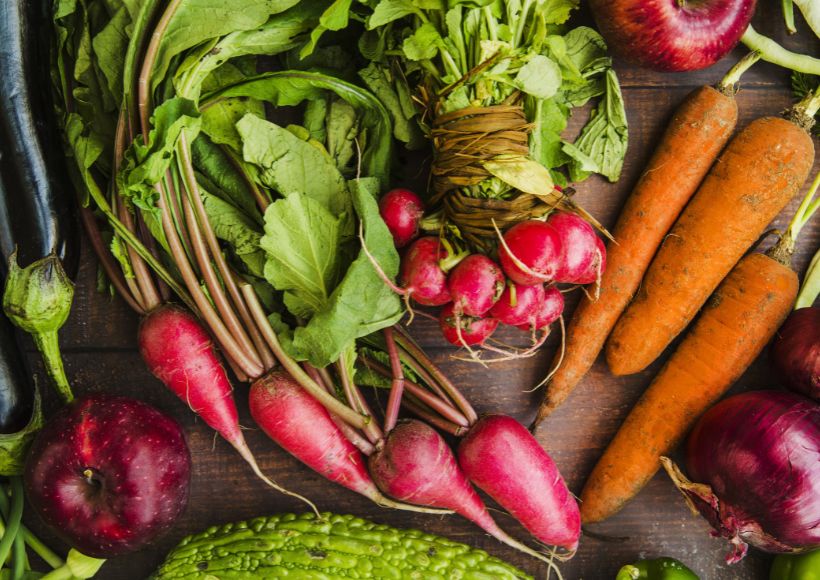Vegetables are among the best sources of carbohydrates and should form the basis of the diet. It contains valuable nutrients, vitamins and minerals. Root vegetables, which are among the traditional and oldest species in our territory, are no exception. It is excellent in soups, baked as a side dish, raw in salads and even used as an ingredient in cakes. How and what does it benefit us?
Table of Contents
Rich in beta-carotene
Carrots are mainly known for their beta-carotene content, and the darker their color, the more beta-carotene they contain . It is more digestible after heat treatment, and fats also help its absorption. Our body produces vitamin A from beta-carotene in the amount it currently needs. Its abundance is especially necessary for good eyesight ( that’s why it is said that carrots are good for the eyes ) and beautiful and healthy skin. In addition to beta-carotene, carrots are a source of vitamin C , B-complex vitamins, potassium, calcium, magnesium, iron and other carotenoids (lutein and lycopene). The fiber contained in carrots, in turn, helps good digestion and improves intestinal peristalsis. It is ideal to buy carrots with cranberries, which should not be wilted.
Valuable not only for iron
Celery is a root vegetable that not everyone likes because of its specific and unique taste. This is caused by the contained essential oils , which protect the plant from bacteria and fungi. However, at the same time, he can thank them for most of the beneficial properties. It contains provitamin A, B-complex vitamins, vitamin E and vitamin K, which our body needs for proper blood clotting . Of the minerals, it is especially rich in potassium, magnesium and iron. Precisely because of the iron content, it is recommended for anemia or for women during the six-month period and with heavy menstruation . It is also worth mentioning the pectin content, which, among other things, lowers the cholesterol level. Celery has diuretic effects, helps the proper functioning of the kidneys and reduces swelling or regulating the level of uric acid. Therefore, it is recommended for gout, but also for arthritis, migraines and psoriasis.
Antioxidant with high vitamin C content
Parsley has a positive effect on digestion, helps against bloating and neutralizes bad breath . It also has antioxidant status and boasts a high vitamin C content . It helps remove excess water from the body, and thus acts against swelling, helps with kidney and bladder diseases. It is also an excellent source of potassium . It is recommended for women with menstrual pain. When buying parsley, prefer smooth, firm and medium-sized pieces. Avoid too large, woody or soft pieces that will not taste fresh.
Loaded with fiber
Beetroot , or beetroot , has antioxidant effects, lowers blood pressure, has an anti-inflammatory and diuretic effect . It contains a relatively large amount of minerals, for example potassium, calcium and magnesium. It is therefore suitable for gout, when the body suffers from an increased level of uric acid in the blood. It is also rich in iron, so it is recommended for people suffering from anemia . We should also mention betanin, the dye responsible for the distinctive color of beets, which lowers homocysteine levels. Its high level damages blood vessels and the heart and also promotes obesity . This vegetable dye therefore improves the flexibility and strength of blood vessels and veins .
Beetroot is low in fat and low in calories, also a friend of a slimline. It contains a significant amount of fiber , which helps with weight loss , lowers cholesterol and facilitates the work of the intestines. Beetroot juice is a stimulant that, among other things, will support the production of gastric juices . It is advisable to dilute it with water and not drink it in large quantities at once ( more than 100 ml of undiluted juice ) in order to avoid digestive problems. Beetroot can also be eaten raw, seasoned with oil and lemon, but it is more digestible when cooked .
Also Read : A Healthy Lunch That Your Children Will Eat With a Smile

